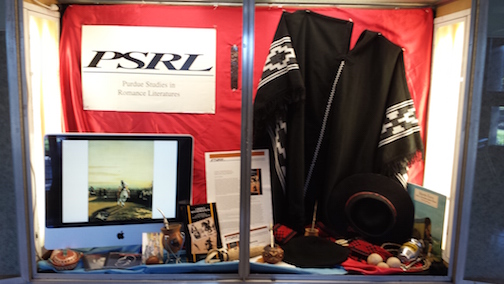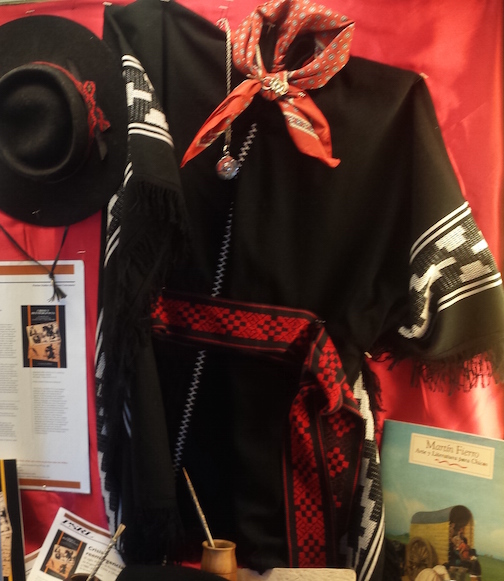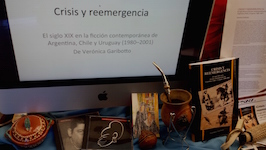Crisis y reemergencia: El siglo XIX en ficción contemporánea de Argentina, Chile y Uruguay (1980-2001)
Verónica Garibotto
In the last decades—and especially since the 1990s—there has been a noticeable reemergence of the nineteenth century in Southern Cone culture. Popular nineteenth-century figures (indios, gauchos, letrados, and cautivas) have reentered the national literary scene in Argentina, Chile, and Uruguay. Nineteenth-century heroes such as San Martín and Artigas are again the main protagonists of Southern Cone theater, film, and literature. Canonical nineteenth-century texts (La cautiva, Martín Fierro, Facundo) are being rewritten one more time in different artistic fields. Foundational nineteenth-century genres (travel narratives, gauchesque poems, and national romances) are being transformed and recycled. Controversial nineteenth-century events (the civil wars, the massacre of indigenous communities) are being revisited and explored. Through a combination of close textual analysis and a broader perspective rooted in cultural theory, this book answers two interrelated questions: Why did the nineteenth century resurface so strongly in the last decades? What are the ideological implications of this reemergence?
Based on a transnational comparison of Argentina, Chile, and Uruguay and a survey of narratives that were mostly produced by well-known figures (political activists, public intellectuals, and canonical authors), Crisis y reemergencia helps to elucidate how the Southern Cone cultural field has changed since the 1990s: how intellectual ethics, national identities, and discursive strategies that were functional to the consolidation of liberalism in the nineteenth century have been challenged, transformed, and re-thought in the last decades. Borrowing from cultural Marxism, discourse analysis, and post-colonial theory, the book pursues a triple contribution: to define the discursive and ideological components that were at the core of the nineteenth century, to show their continuity up to the 1990s (and thus clarify the connections between liberalism and neo-liberalism), and to expose their recent transformation; a transformation that paved the way for the “return of the political” to the region.
“This book that traces cultural trends of the nineteenth century in the twenty-first century constitutes an important and valuable addition to the field of Latin American studies. The author forcefully demonstrates the reemergence of nineteenth-century imaginaries in the post-dictatorial cultures of Argentina, Chile, and Uruguay, asserting at the same time the necessity of reading the nineteenth century not as a chronological period but as a ‘mode of enunciability’ that transcends the time limits in which it is frequently framed.”—Ana Peluffo, University of California, Davis
Verónica Garibotto is an assistant professor of Latin American literary and cultural studies in the Department of Spanish and Portuguese at the University of Kansas. Her research addresses the links among culture, history, and politics in nineteenth to twenty-first-century Latin America, especially in Argentina, Chile, and Uruguay. Her articles have appeared in academic journals such as Revista Iberoamericana, Revista de Estudios Hispánicos, Studies in Hispanic Cinemas, Journal of Latin American Cultural Studies, and Latin American Literary Review. Her latest project aims at reformulating the dominant theoretical frameworks for interpreting contemporary testimonial cinema and literature.
PSRL 64. 2015. 262 pp. 978-1-55753-715-7, paper $45.00; e-book available $38.99. In Spanish.

 Things from Argentina thanks to Cecilia Tenorio and Joyce Detzner.
Things from Argentina thanks to Cecilia Tenorio and Joyce Detzner.
 Items from Uruguay compliments of Marcos Wasem.
Items from Uruguay compliments of Marcos Wasem.
Display case in Stanley Coulter Hall week of September 23-30, 2015.
Information last updated October 2, 2015
For further information about this book, contact the production editor at clawsons@purdue.edu